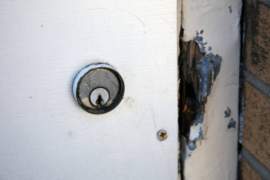
South Dakota Expungement Laws

South Dakota courts have the ability to expunge records. Expunging can mean various things such as obliteration, sealing or destruction of criminal records. Expunging a record takes away the general public's ability to easily look up and find the information regarding that record. It gives the person whose record were expunged the legal right to deny all involvement in criminal activity relating to the expunged records.
While the public will not have access to the expunged records, the court system and criminal investigators will still have records for safety and historical purposes. Expunged records may be brought up in future criminal cases involving the person whose record was expunged. The record may also be used to assist a criminal investigation. Any agencies that are in possession of records or information obtained from a record that has been expunged will be required to submit that information to the South Dakota court that heard the expungement case.
Requirements to Expunge a Criminal Record
The petitioning person is no longer alive.
The person is at least 75 years old and has not committed an offense in ten years.
The offense committed is no longer a crime according to the State of South Dakota.
The misdemeanor offense committed occurred ten years before the request for an expungement.
After an acquittal or dismissal of charges, the court may send a written request to the South Dakota State Forensic Laboratory to destroy all DNA and identifiable information of a defendant related to an expunged record. After completion of a sentence including probation, expunging a record will remove all records from public access. The Division of Criminal Investigation in Dakota will have access for possible investigation purposes.
The person whose record was expunged is free from perjury or accusations of giving false statements if they choose to deny any involvement in the crime on record. Pardons made to expunge records may only be made following a majority vote taking place in the South Dakota Board of Pardons and Paroles.
Juvenile Expungements
Juveniles taken into custody will have their records withheld from public access. This includes names and offenses committed. The records of officers and law enforcement agencies involved in the temporary custody of a juvenile with be stored in a different location than that of adults. Juvenile records may be withheld from expunging if:
The court orders the records remain public.
The court orders the child be held for criminal proceedings.
If there is a criminal investigation or conviction.
If the juvenile's parents decide to submit the records to the United States military for enlistment purposes.



















